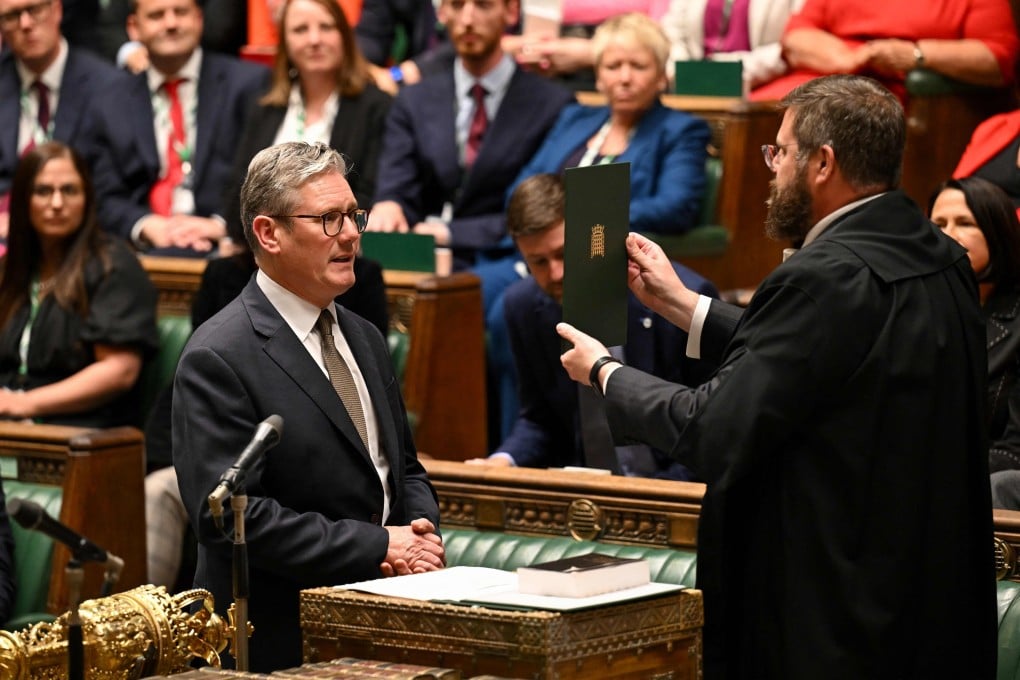Advertisement
Macroscope | US and France may be in turmoil but Britain is no island of stability
- The political chaos and the sway of populist politicians in the US and France are no reason to overlook the many problems facing Britain
Reading Time:3 minutes
Why you can trust SCMP

A “safe haven” and an “island of stability”. These are not terms typically associated with the UK, especially after the country’s shock decision in 2016 to vote to leave the European Union, an act of national self-harm on an epic scale.
Advertisement
Yet even before the Labour Party’s landslide victory in parliamentary elections on July 4, the UK was relatively stable and predictable. These attributes are increasingly scarce as political and economic turmoil engulfs many large developed and emerging markets.
At a time when populist and nationalist parties are pushing their way into mainstream politics, Britain appears to have returned to the path of centrism. The Labour Party, whose election manifesto embraced change yet eschewed many contentious measures and reforms for fear they would cost the party votes, won a thumping majority, giving it the second-largest number of seats in the party’s history.
Moreover, Prime Minister Keir Starmer’s landslide victory was widely anticipated by financial markets and, as Fordham Global Foresight noted, “was a textbook example of a smooth democratic transition” with “no allegations of impropriety, and no one refusing to accept the result”. Britain’s drama-free election has reinforced the perception among investors that the country has entered a phase of “greater political and policy stability”, in the words of JPMorgan.
The shift in sentiment is remarkable. Almost two years ago, former Conservative prime minister Liz Truss’ reckless fiscal plan almost caused a full-blown financial crisis. Bond markets took fright, driving up borrowing costs sharply and forcing Truss to resign after just 49 days in the job. Her tenure contributed significantly to the calamitous defeat of the Tories in the election and provides an additional guarantee that Starmer’s government will act responsibly. Hedge fund bets on a stronger pound have risen to their highest level since 2018.
Two other factors are working in Britain’s favour. The first is that France is now the main source of instability and uncertainty in Europe. While the threat of a far-right government failed to materialise, a left-wing alliance dominated by a hard-left party won the largest number of seats in the second round of the parliamentary elections on July 7. Yet, with none of the three main blocs having enough seats to govern, France is left with a hung parliament and the prospect of a long period of political turmoil.
Advertisement

Advertisement
